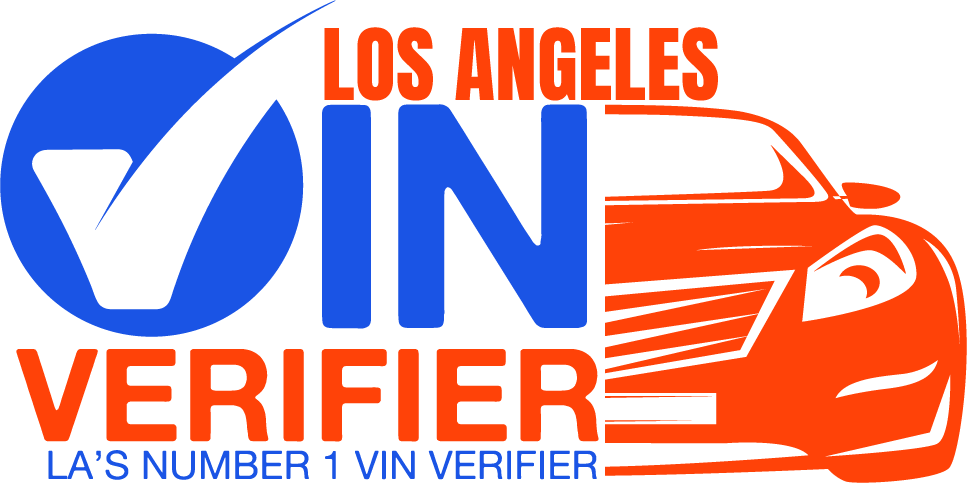As you navigate the complexities of vehicle ownership in Los Angeles, you might find yourself needing a VIN verifier, but what exactly do they do, and why is their role so crucial? Essentially, a VIN verifier ensures that your vehicle's identification number matches official records, a simple yet vital step in protecting you from fraud and ensuring compliance with state regulations. They're the unsung heroes in the background of every vehicle transaction, safeguarding your investment from potential legal headaches. Now, consider the implications of their work not just for individual owners, but for the broader automotive market in Los Angeles. What might this mean for you?
VIN Verification Overview

VIN verification ensures a vehicle's identification number matches its official documentation, a crucial step for registration in California. When you're facing tasks such as registering an out-of-state vehicle or updating records for a modified vehicle, this verification becomes mandatory. A licensed VIN verifier conducts a physical inspection to confirm the details of your vehicle, like the year, make, and model, and checks the VIN against the California DMV database for consistency.
During the verification process, the verifier uses the REG 31 form to document the findings meticulously. This form captures all crucial details observed during the physical inspection and serves as official proof that the vehicle identification number has been verified. It's a thorough process, ensuring that the vehicle matches its records and legal standards.
Once the inspection is complete and if all details align correctly, you'll receive a verification certificate or a sticker. This certificate is essential for successful DMV registration, as it confirms the legitimacy of your vehicle's identity. Keeping this certificate handy streamlines your interaction with the DMV, making your registration process smoother and more efficient.
VIN Verification Importance
You'll find that verifying the VIN is imperative for ensuring the authenticity of your vehicle's identity and safeguarding against fraud. When you engage a vehicle verifier for VIN verification, you're taking a critical step to ensure that the vehicle's identification matches official records like the title and registration. This is vital, especially in California, where VIN verifications are integral to the vehicle registration process for foreign or out-of-state vehicles.
This meticulous verification safeguards your purchase by confirming that the VIN hasn't been tampered with, which is crucial for avoiding the pitfalls of buying stolen or salvaged vehicles. Such due diligence enhances consumer trust and ensures compliance with DMV regulations. Without this step, you might unknowingly infringe on legal guidelines, leading to possible penalties or, worse, vehicle impoundment.
Moreover, a verified VIN not only helps maintain accurate vehicle history and ownership records but also increases the resale value of your vehicle. Prospective buyers are more likely to trust and invest in a vehicle with a clear, verified history supported by official documents. This not only reflects well on you as a seller but also ensures that all supporting documents are beyond dispute, cementing the vehicle's authenticity and your credibility.
Verification Process Explained

Let's explore how the VIN verification process is carried out to match your vehicle's information with official documents.
The journey begins with a physical inspection by licensed VIN verifiers, who are authorized to ensure that your vehicle's Vehicle Identification Number (VIN) aligns with the details on your title and registration. This is more than just a quick VIN verification; it's a detailed review of the vehicle's year, make, model, body type, gross vehicle weight rating (GVWR), and mileage.
During the inspection, the verifier will check multiple locations on your vehicle to locate and verify the VIN. This crucial step is especially important if you're registering foreign or out-of-state vehicles, or if your vehicle has been missing from DMV records.
After the physical inspection, a verification form, specifically a REG31, is completed. This form is your ticket to advancing in the registration process with the Department of Motor Vehicles (DMV).
Verification Locations and Sources
You can find authorized locations for VIN verification at state DMVs, local law enforcement offices, and licensed private stations across Los Angeles. Each of these places is equipped to handle the physical inspection required to ensure your vehicle's VIN matches official records, which is crucial for your peace of mind and legality.
Among the authorized sources, the California Highway Patrol (CHP) officer stands out as a reliable option. They offer free verification services, though you'll need to schedule an appointment and sometimes need a referral. This is particularly handy if you're looking for an official stamp of approval without extra costs.
However, if you're pressed for time, private automotive service providers might be your go-to. These licensed VIN verification stations provide flexibility and often have quicker service times for a fee. It's important, though, to verify their credentials to avoid any hiccups with compliance to California state regulations.
Benefits of Verification Services

As you explore the benefits of verification services, it's crucial to understand the verification process itself.
This process ensures that the vehicle you're considering is accurately represented, safeguarding you from future headaches.
We'll look at how this process works and why it's indispensable for both buyers and sellers.
Verification Process
VIN verification services significantly enhance vehicle transaction security by ensuring all vehicles are registered accurately and in compliance with state laws. When you verify your VIN through authorized VIN verifiers, you're not just complying with regulations; you're also protecting yourself from potential fraud.
The VIN verification process is thorough, checking that the VIN on your vehicle matches the one on official documents, which helps in preventing fraudulent registrations.
By accessing comprehensive vehicle history data, you gain insights into past issues like salvage titles or odometer discrepancies. This information is crucial as it directly impacts your decision-making, boosting your confidence as a buyer.
Once the process is complete, you'll receive a verification certificate or sticker, essential for DMV registration. Without this certificate, you could face fines or complications proving vehicle ownership.
Utilizing VIN verification services does more than just facilitate compliance with the law; it fosters trust within the automotive market. It confirms the legitimacy of the vehicle's history and ownership, benefiting both buyers and sellers.
This level of assurance is invaluable in today's market where transparency is a key factor in securing consumer trust and completing successful vehicle transactions.
Required Documentation Details
To ensure a smooth VIN verification, it's essential that the vehicle is present and you have supporting documents like the title or bill of sale.
In Los Angeles County, the inspection process conducted by VIN verifiers requires your vehicle to be physically there to verify the VIN against these documents. You don't necessarily need to bring documents like the vehicle title or registration, but having them can speed up the process.
When you meet with a VIN verifier, they'll use form REG31 to document the verification. This form is critical and is either provided by the DMV or by licensed VIN verifiers as part of their service.
Make sure you have this form ready; you can grab it from your nearest DMV office or download it online before your appointment.

